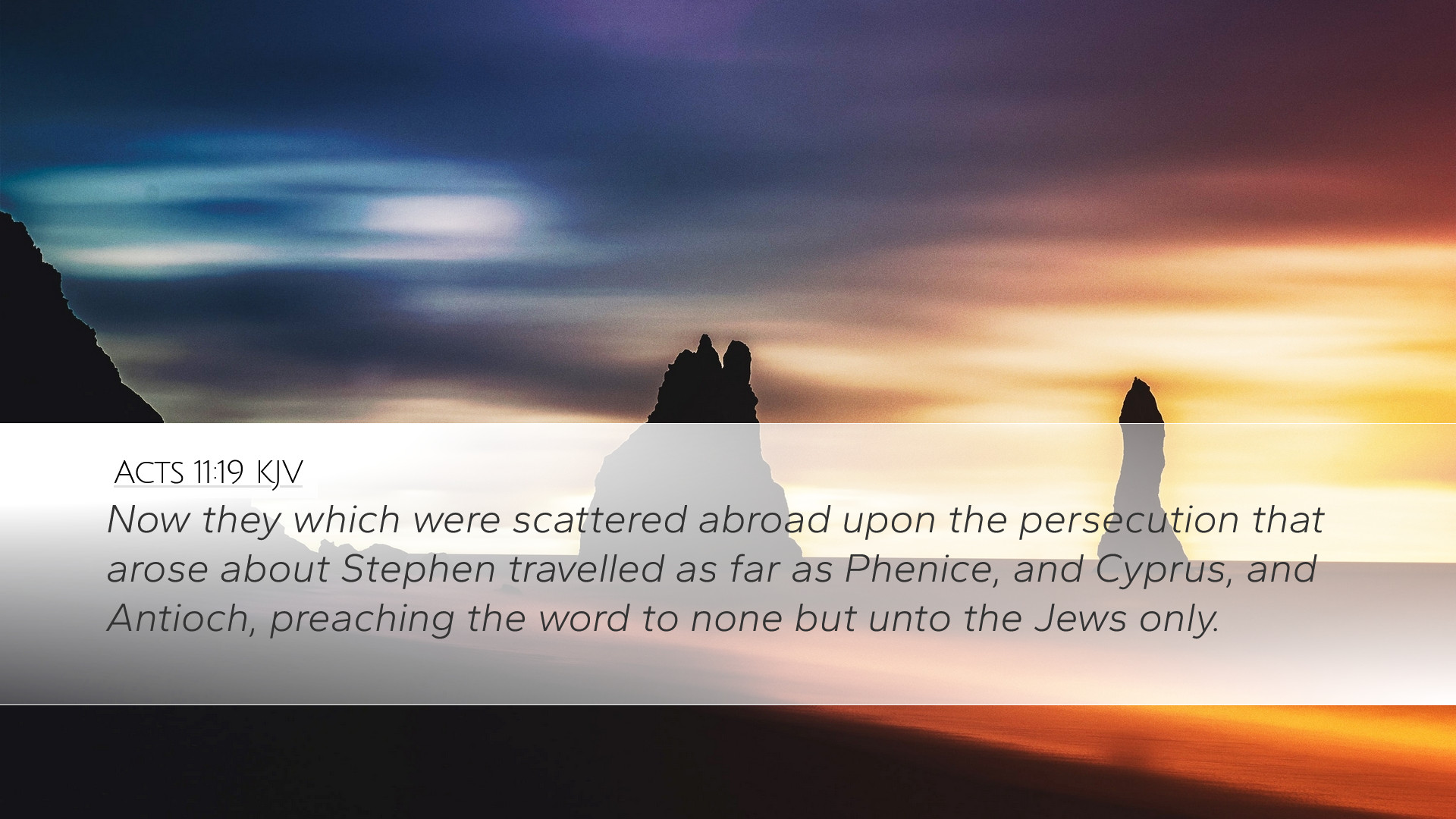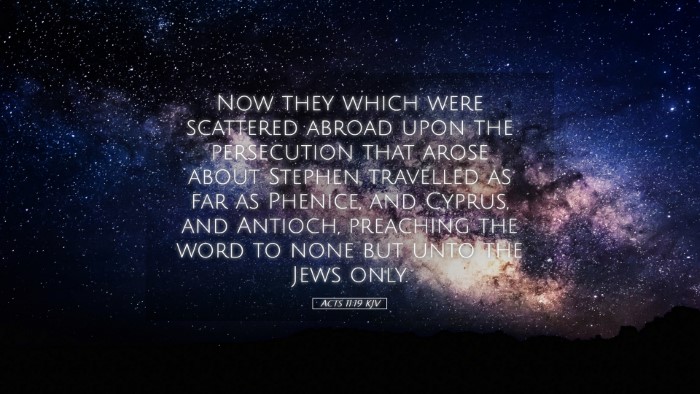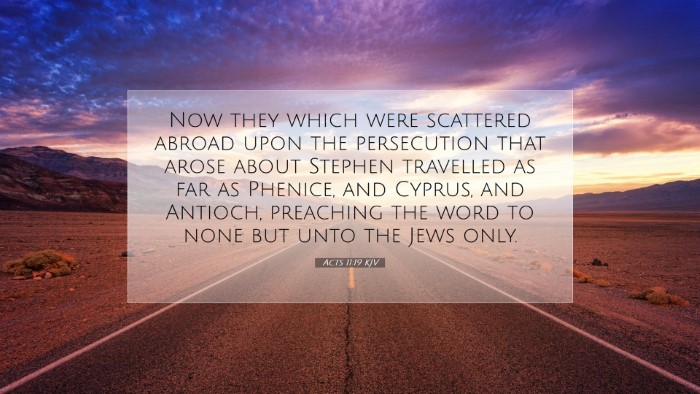Commentary on Acts 11:19
Verse: “Now those who had been scattered by the persecution that broke out when Stephen was killed traveled as far as Phoenicia, Cyprus and Antioch, spreading the word only among Jews.”
Acts 11:19 marks a pivotal moment in the early church, reflecting the profound impact of persecution and the subsequent expansion of the gospel. Here, we draw upon the insights of esteemed public domain commentators such as Matthew Henry, Albert Barnes, and Adam Clarke to provide a comprehensive understanding of this scripture.
Context and Setting
Historical Background: Following the martyrdom of Stephen, a wave of persecution swept through Jerusalem, compelling many believers to flee. This scattering, while intended to suppress the church, paradoxically facilitated the spread of the gospel beyond Jewish boundaries.
Analysis of the Verse
1. The Scattering of the Believers
Matthew Henry astutely notes that the scattering of believers was not a mere consequence of persecution but was providentially guided by God to fulfill His promise of spreading the gospel. The believers, driven from Jerusalem, became unwitting missionaries in their new locales.
2. Locations Mentioned
- Phoenicia: A coastal region known for its trading cities, where Jewish merchants would have had an established presence.
- Cyprus: An island in the Mediterranean, significant for its diverse population and strategic location for the early church's outreach.
- Antioch: Not just a geographical location, but a pivotal city that would later become the heart of Gentile Christianity, illustrating God’s intention to widen the scope of His message.
3. The Nature of Their Ministry
Despite being persecuted, these scattered believers maintained their allegiance to the Jewish roots of their faith, as highlighted by Albert Barnes. They preached the gospel exclusively to Jews initially, revealing the gradual unfolding of God’s redemptive plan which would later include the Gentiles.
4. Theological Implications
Adam Clarke emphasizes that this passage illustrates the tension between Jewish and Gentile believers, a theme that recurs throughout Acts. The early church's decisions regarding the inclusion of the Gentiles were not yet realized, indicating a process of divine revelation and adaptation within the church community.
The Purpose Behind the Persecution
The persecution that drove the believers away can be seen as both a trial of faith and a means of divine orchestration for a greater purpose. As Henry posits, “God can make the wrath of man to praise him;” this provides hope that even trials can lead to advancements in God’s kingdom.
Call to Action for Contemporary Believers
This passage has profound implications for today's church. Believers are called to respond to trials not with despair but with a purposeful advance of faith.
- Embrace Faithfulness: Just as the early Christians did not succumb to fear, contemporary believers are encouraged to remain faithful even amidst persecution.
- Expand the Gospel's Reach: The movement from Jerusalem to the ends of the earth should inspire modern Christians to embrace and engage diverse communities with the gospel.
- Trust in God’s Sovereignty: Recognizing that God uses all circumstances—good or bad—for His glory brings comfort and assurance in difficult times.
Conclusion
Acts 11:19 serves as a testimony to God’s sovereignty and the unstoppable nature of the gospel. Despite the adverse conditions, the early church's resilience resulted in the spreading of the Word, paving the way for further inclusion of Gentiles into the faith. As pastors, students, and scholars reflect on this passage, it encourages an understanding that from adversity comes opportunity, and every challenge can become a conduit for God’s grace and truth in the world.


